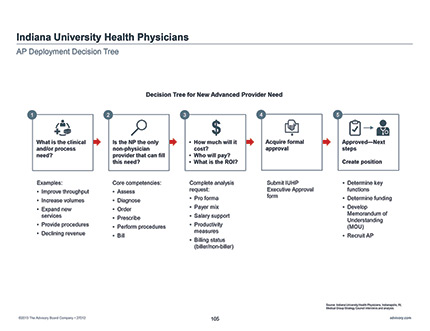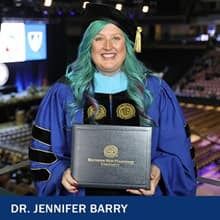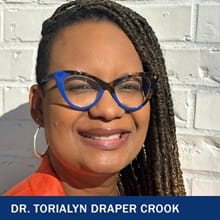Is a PhD a Doctor? Demystifying Academic Titles
As you’ve thought about going back to school to earn a PhD degree, you might have wondered, “Is a PhD a doctor?”

It’s worth exploring the answer to this question, because a PhD is a doctor, but not in the way some might think.
Editorial Listing ShortCode:
As you learn more about what it means to hold a PhD, you’ll also discover facts about what this degree entails and where it may take you in life. In the process, you can find out whether getting a PhD is the right choice for you!

Is a PhD a Doctor?

Yes, a PhD is a doctor. That’s because this degree is also called a Doctor of Philosophy. Having a PhD demonstrates that you are an expert who can contribute new research to your field.
Despite the “doctor” title, having a PhD doesn’t mean that you can practice medicine. It’s entirely different from being a medical doctor (MD). To understand what a PhD is, it helps to know what’s involved.
To earn a PhD, you’ll take a series of courses. You’ll also complete a huge research and writing project called a dissertation. This project will focus on a specific niche within your subject area. There may be comprehensive examinations involved as well.
Examples of PhD degrees include:
- PhD in Biochemistry
- PhD in Computer Science
- PhD in Chemical Engineering
- PhD in Economics
- PhD in History
- PhD in Management
In a PhD program, you’ll explore the theoretical side of your field. You might produce new research that can contribute to people’s understanding of your subject area and can help guide how practitioners carry out their work.
Generally, someone who earns a PhD doesn’t intend to be a practitioner. For example, a person getting a PhD in Management may not plan to become a business manager. Rather, that student wants to explore management theories that can improve organizational and business practices. This sets PhD degrees apart from another type of doctoral degree—the applied or professional doctorate.
People who earn professional doctorates want an expert-level education that they can apply to the work that they do in their field. For example, for a person who plans to be a business manager, a Doctor of Business Administration (DBA) could be fitting.
A person with a PhD, on the other hand, often intends to become a scientific researcher or a professor. It’s a degree focused on academia. Regardless of the distinctions between these degrees, people with PhDs, applied doctorates, and MD degrees can all be called “doctor” in most contexts.
What Is a PhD?

A Doctor of Philosophy (PhD) is an advanced degree that involves expert-level research and learning. In most fields, a PhD represents the highest level of learning available, so it’s often known as a terminal degree. This type of doctoral degree is research oriented.
In addition to taking classes, students undertake a major research project that contributes new ideas or theories to their field. This project involves writing a sizable paper known as a dissertation. Getting a PhD sets many students on the path toward a career in academia as an educator or a researcher.
Do You Need a PhD to Be a Professor?

The requirements for becoming a professor can vary greatly from one college to another, but a PhD is not always necessary. It can certainly help, though, especially if you’re seeking a full-time tenured position at a major university. Many schools accept other terminal degrees, such as professional doctorates, as well.
Do professors need a PhD ? In some cases, a doctoral degree may not be essential. A master’s degree and professional experience may suffice for technical instructors, such as those in allied health fields. Also, some schools require only a master’s degree for teaching lower-level courses. Community colleges are a prime example.
What’s the Difference Between an MD vs. PhD Degree?
Although you can call someone with a PhD “doctor,” it’s not the same as being a healthcare provider. It’s essential to understand this distinction when asking, “Are PhD doctors?”
So, if you have a PhD are you a doctor? Yes, that will be your title, but it won’t qualify you to practice medicine.
What’s the Difference Between a Professional Doctorate vs. PhD?
Many fields include two options for terminal degrees: professional doctorate degrees and PhDs. Your goals can help you determine which is best for you.
When considering the differences between a PhD vs. doctorate degree, neither of these degrees is “higher” than the other in terms of education level.
Getting Your PhD Degree Online

Now that you have an answer to the question “Does a PhD make you a doctor?” you may be ready to enroll in a PhD program and earn your doctoral degree. A number of universities now offer one year online doctoral programs .
In addition to granting you the title of “doctor,” this type of degree program can also benefit your career and provide personal fulfillment. Perhaps you’ll become a researcher, a professor, or a leader in your industry. You could also have the pride and satisfaction of knowing you’ve accomplished a huge undertaking.
You can earn your PhD through online study with an accredited university. You can start exploring top schools for online PhD programs today.


- PhD vs MD – Differences explained
- Types of Doctorates
A MD is a Doctor of Medicine, whilst a PhD is a Doctor of Philosophy. A MD program focuses on the application of medicine to diagnose and treat patients. A PhD program research focuses on research (in any field) to expand knowledge.
Introduction
This article will outline the key differences between a MD and a PhD. If you are unsure of which degree is suitable for you, then read on to find out the focuses and typical career paths of both. Please note this article has been written for the perspective of a US audience.
What is a MD?
MD (also seen stylized as M.D and M.D.) comes from the Latin term Medicīnae Doctor and denotes a Doctor of Medicine.
MDs practice allopathic medicine (they use modern medicine to treat symptoms and diseases). A common example would be your physician, though there are numerous types of medical doctors, with different areas of speciality and as such may be referred to differently.
What is a PhD?
A PhD (sometimes seen stylized as Ph.D.) comes from the Latin term Philosophiae Doctor and denotes a Doctor of Philosophy.
A PhD can be awarded for carrying out original research in any field, not just medicine. In comparison to an MD, a PhD in a Medicinal field is focused on finding out new knowledge, as opposed to applying current knowledge.
A PhD in Medicine therefore does not require you to attend medical school or complete a residency program. Instead, you are required to produce a thesis (which summarizes your research findings) and defend your work in an oral examination.
What is the difference between a MD and a PhD?
Both are Doctoral Degrees, and someone with either degree can be referred to as a doctor. But for clarity, MDs are awarded to those with expertise in practicing medicine and are therefore more likely to be found in clinical environments. PhDs are awarded to researchers, and are therefore more likely to be found in academic environments.
This does not mean that MDs cannot pursue a research career, nor does it mean that a PhD cannot pursue clinical practice. It does mean, however, that PhDs are more suited to those who would wish to pursue a career in research, and that MDs are more suited to those who prefer the clinical aspects of medicine or aspire to become a practicing physician.
It should also be noted that a medical PhD doctorates possess transferable skills which make them desirable to various employers. Their familiarity with the scientific method and research experience makes them well suited to industry work beyond medical research.
Program structure and time
The standard MD program structure sees students undertake 2 years of coursework and classroom-based learning, before undertaking 2 years of rotational work in a clinical environment (such as a hospital). Getting an MD requires attending a medical school (accredited by the Liaison Committee on Medical Education) and completing a residency program. Both of which prepare students to diagnose patients and practice clinical medicine.
The standard PhD program lasts 5 to 7 years and sees students undertake original research (monitored by a supervisor). Getting a PhD requires the contribution of novel findings, which leads to the advancement of knowledge within your field of research. With the exception of some clinical PhDs, a PhD alone is not enough to be able to prescribe medicine.
PhD doctorates are required to summarize the purpose, methodology, findings and significance of their research in a thesis. The final step is the ‘ Viva Voce ’ where the student must defend their thesis to a panel of examiners.
To summarize, a MD program usually lasts 4 years, whilst a PhD program lasts 5 to 7 years. Before being licensed to practice medicine, however, you must first complete a residency program which can last between 3 to 7 years.
What is a MD/PhD?
A MD/PhD is a dual doctoral degree. The program alternates between clinical focused learning and research focused work. This is ideal for those who are interested in both aspects of medicine. According to the Association of American Medical Colleges, an estimated 600 students matriculate into MD-PhD programs each year .
The typical length of a MD/PhD program is 7 to 8 years, almost twice the length of a MD alone. As with a MD, MD/PhDs are still required to attend medical school and must complete a residency program before being able to practice medicine.
In comparison to PhD and MD programs, MD/PhD positions in the United States are scarce and consequently more competitive. The tuition fees for MD/PhD positions are typically much lower than MD and PhD positions are sometimes waived completely.
Those who possess a MD/PhD are commonly referred to as medical scientists. The ability to combine their medical knowledge with research skills enables MD/PhDs to work in a wide range of positions from academia to industrial research.
Finding a PhD has never been this easy – search for a PhD by keyword, location or academic area of interest.
Browse PhDs Now
Join thousands of students.
Join thousands of other students and stay up to date with the latest PhD programmes, funding opportunities and advice.

- ACADEMIC ADVICE
What’s the Difference Between a Ph.D. and a Doctorate?
- May 1, 2023
Table of Contents
Research (academic), applied (professional), what is a ph.d., is a ph.d. higher than a professional doctorate, doctoral study vs. dissertation, who is it for, what do you learn in each, can a ph.d. be called a doctor, the bottom line.
The terms Ph.D. and Doctorate are often used interchangeably when considering advanced degrees in academia. Both degrees involve rigorous academic study and research, but their focus, duration, and requirements differ. Hence, these significant differences between the two are worth understanding before deciding which path to pursue.
In this article, we will explore the key differences between doctorate vs. Ph.D., including their definitions, the types of programs they are offered in, and the career opportunities they lead to. By the end, you should have a clear understanding of the differences between these two degrees and which one is right for you.
What Is a Doctorate?
A doctorate degree is the highest level of academic degree that can be awarded by a university. It typically requires a minimum of three to five years of advanced study and research beyond a bachelor’s or master’s degree . Doctoral programs are designed to prepare individuals for advanced careers in academia, research, or other professional fields. There are two main types of doctorates: Research (Academic) and Applied (Professional). Let’s talk about each in more detail.
A research doctorate, also known as an academic doctorate, is a type of doctoral degree focused on original research and advancing knowledge in a specific academic field. These programs require students to take advanced coursework in their field and complete original research contributing to the body of knowledge in their study area. The research component is typically the program’s centerpiece, and students are expected to produce a dissertation or thesis that represents a significant contribution to their field of study.
A research doctorate is highly valued in academia, and graduates often pursue careers as professors, researchers, or scholars in their field. While a significant time commitment and dedication are required, they provide individuals with the skills and knowledge necessary to make contributions to their field and advance their careers in academia. Examples of research doctorates include the Doctor of Philosophy (Ph.D.), Doctor of Science (D.Sc.), and Doctor of Education (Ed.D.) , among others.
An applied doctorate, or professional doctorate, is a type of doctoral degree that focuses on applying knowledge and skills in a specific profession or industry. These programs emphasize the practical application of research and theories to solve real-world problems in their field.
The curriculum includes coursework designed to enhance students’ professional skills, including leadership, management, or organizational behavior. An applied doctorate program’s capstone project or dissertation addresses a real-world problem or issue within the student’s profession or industry. The research is conducted in collaboration with professionals in the field.
While applied doctorate programs require a significant time commitment and dedication to a specific profession, they provide individuals with the knowledge and skills necessary to become experts in their field and make a great impact. Graduates of such programs are well-prepared to take on leadership roles in their profession. The degree can lead to career advancement and higher salaries.
Examples of applied doctorates include the Doctor of Education (Ed.D.), Doctor of Business Administration (DBA), and Doctor of Psychology (Psy.D.), among others.
Students who have completed advanced studies in a particular academic field and contributed original research to that field are awarded a Ph.D., also known as a Doctor of Philosophy. Ph.D. programs are geared toward developing independent scholars who can conduct original research and advance knowledge in their chosen fields.
The coursework of a Ph.D. program involves advanced studies in the student’s area of interest, coupled with a significant research component. Students must produce a dissertation or thesis that adds to the existing body of knowledge in their field of study.
Ph.D. programs generally require multiple years to complete and lead to opportunities for graduates to work as professors, scholars, or researchers within their field of specialization. While Ph.D. degrees are commonly associated with academic careers, they can also offer advantages for graduates seeking positions in government or industry, as they demonstrate expertise in a specific area and an aptitude for original research.
Comparing a Ph.D. to a professional doctorate is difficult, as both degrees have distinct characteristics and are designed for different purposes.
A Ph.D. is primarily a research-focused degree focused on producing independent scholars who can conduct original research and contribute to the advancement of knowledge in a particular field. On the other hand, a professional doctorate focuses on the application of knowledge and skills in a specific profession or industry.
These programs typically emphasize the practical application of research and theories to solve real-world problems in their field. Graduates of professional doctorate programs are well-prepared to take on leadership roles in their profession, and the degree can lead to career advancement and higher salaries.
So, in terms of purpose and focus, Ph.D. and professional doctorate degrees are different. It’s not a matter of one being higher than the other, but rather, it depends on an individual’s career goals and aspirations. Both degrees are considered terminal degrees, meaning they represent the highest level of academic achievement in their respective fields.
Ph.D. vs. Professional Doctorate: Differences
Understanding the differences between a Ph.D. and a professional doctorate can help you make an informed decision about which program is right for you and your career goals. And while both types of degrees require extensive study and research, there are significant differences between the two.
✅ Request information on BAU's programs TODAY!
One of the key differences between a Ph.D. and a professional doctorate is the focus of the doctoral study. Ph.D. programs typically focus on producing independent scholars who can conduct original research and advance knowledge in their chosen field. In contrast, professional doctorate programs emphasize the practical application of research and theories to solve real-world problems in their field.
While both degrees require extensive research, Ph.D. programs often require a significant original contribution to the field in the form of a dissertation, while professional doctorate programs typically require a capstone project or applied research project that demonstrates the student’s ability to apply their knowledge to a real-world problem.
Ph.D. programs are geared toward individuals interested in pursuing an academic career, such as becoming a professor or researcher. These programs prepare students for a life of scholarship and original research.
On the contrary, professional doctorate programs are geared toward professionals already working in a specific profession or industry and wanting to advance their careers through further education. These programs provide students with the knowledge and skills needed to take on leadership roles in their profession or industry.
The content of the curriculum in Ph.D. and professional doctorate programs differs significantly. Ph.D. programs aim to give students extensive knowledge of their field of study and equip them with the skills to conduct original research. On the other hand, professional doctorate programs have a practical focus, with students taking courses that prepare them for leadership positions in their respective professions or industry, including management, ethics, and professional communication.
The title “Doctor” is used to refer to someone who has earned a doctoral degree, whether it is a Ph.D. or a professional doctorate. In academic and professional settings, it is common for individuals with a Ph.D. to be referred to as “Dr.” along with their name, just as someone with a professional doctorate would be.
However, it’s important to note that the title “Doctor” does not necessarily indicate that the person is a medical doctor or a physician. Additionally, it is worth noting that different countries and cultures have different conventions for how the title “Doctor” is used, so it’s always a good idea to check local customs and norms to ensure proper usage.
In conclusion, the decision to pursue a Ph.D. or a professional doctorate ultimately depends on your individual career goals and aspirations. Both degrees are highly respected and can lead to exciting and fulfilling careers.
Remember, the pursuit of advanced education is a challenging but rewarding journey that leads toward new opportunities, personal growth, and the chance to make a positive impact in your field.
Bay Atlantic University
Leave a reply.
Your email address will not be published. Required fields are marked *
Save my name, email, and website in this browser for the next time I comment.
You May Also Like
- 6 minute read
The Ultimate Guide to Standardized Tests in the United States
- January 22, 2021
- 5 minute read
Project Management Methodologies To Know and Use
- March 4, 2022
- 4 minute read
10 Things To Do To Prepare For College
- July 30, 2020
- 8 minute read
How Long You Can Stay in the U.S. on a Student Visa?
- May 17, 2022
- 8 shares 8 0 0
- INFORMATION TECHNOLOGY
12 Useful Apps for College Students
- June 3, 2022
Can International Students Work In the USA? Opportunities & How To Find Them
- July 16, 2020
13 Benefits of Going to College
- April 2, 2024
Auditory Learner: Characteristics & Benefits
- 7 minute read
How Much Do Writers Make?
- April 1, 2024
- POLITICAL SCIENCE
What is a Diplomat and What Do They Really Do?
- March 7, 2024
- 7 shares 5 0 2
Request information on BAU's programs TODAY!
What Is a Doctorate Degree?
A doctorate is usually the most advanced degree someone can get in an academic discipline, higher education experts say.
What Is a Doctorate?

Getty Images
It's unwise to apply to a doctoral program if you don't have a clear idea of how you might use a doctorate in your career.
In many academic disciplines, the most advanced degree one can earn is a doctorate. Doctorate degree-holders are typically regarded as authorities in their fields, and many note that a major reason for pursuing a doctorate is to increase professional credibility.
"If someone wants to be respected as an expert in their chosen field, and also wants to have a wider array of options in research, writing, publishing, teaching, administration, management, and/or private practice, a doctorate is most definitely worth considering," Don Martin, who has a Ph.D. in higher education administration , wrote in an email.
A doctoral degree is a graduate-level credential typically granted after multiple years of graduate school, with the time-to-degree varying depending on the type of doctoral program, experts say.
Earning a doctorate usually requires at least four years of effort and may entail eight years, depending on the complexity of a program's graduation requirements. It also typically requires a dissertation, a lengthy academic paper based on original research that must be vetted and approved by a panel of professors and later successfully defended before them for the doctorate to be granted.
Some jobs require a doctorate, such as certain college professor positions, says Eric Endlich, founder of Top College Consultants, an admissions consulting firm that helps neurodivergent students navigate undergraduate and graduate school admissions.
Endlich earned a Doctor of Philosophy degree, commonly known as a Ph.D., from Boston University in Massachusetts. He focused on psychology and notes that a doctoral degree is generally required to be a licensed psychologist.
"Since a Ph.D. is a research-focused degree, it can be advantageous to those seeking high-level research positions in scientific fields such as astrophysics or biotechnology," he says.
How Long it Takes to Get a Doctorate Degree
Martin, founder and CEO of Grad School Road Map, an organization that helps grad school applicants navigate the admissions process, says obtaining a doctorate is often a lengthy endeavor.
"Typically it can take between four and six years to complete any doctoral program," he says. "If comprehensive examinations and a dissertation are part of the graduation requirements, it may take a year or two longer. There is no standard amount of time – some students take seven to 10 years to finish."
Endlich says doctoral degree hopefuls should be aware that completing a dissertation may take a long time, especially if unexpected hurdles arise.
"My dissertation, for example, involved recruiting college students to complete questionnaires, and it took much longer than I anticipated to recruit enough subjects for my study," he says.
The standards for a dissertation, which include the proposal and research, are rigorous and usually involve a review and approval by a faculty committee, says Hala Madanat, vice president for research and innovation at San Diego State University in California.
"As part of dissertation requirements, some programs will require publication of the research in high-impact peer-reviewed journals," Madanat wrote in an email.
Types of Doctoral Degree Programs
According to professors and administrators of doctoral programs, there are two types of doctorates.
Doctor of Philosophy
A doctor of philosophy degree is designed to prepare people for research careers at a university or in industry, and teach students how to discover new knowledge within their academic discipline. Ph.D. degrees are offered in a wide range of academic subjects, including highly technical fields like biology , physics, math and engineering; social sciences like sociology and economics; and humanities disciplines like philosophy.
A Ph.D. is the most common degree type among tenure-track college and university faculty, who are typically expected to have a doctorate. But academia is not the only path for someone who pursues a Ph.D. It's common for individuals with biology doctorates to work as researchers in the pharmaceutical industry, and many government expert positions also require a Ph.D.
Professional or clinical doctorates
These are designed to give people the practical skills necessary to be influential leaders within a specific industry or employment setting, such as business, psychology , education or nursing . Examples of professional doctoral degrees include a Doctor of Business Administration degree, typically known as a DBA; a Doctor of Education degree, or Ed.D.; and a Doctor of Nursing Practice degree, or DNP.
A law degree, known as a juris doctor or J.D., as well as a Doctor of Medicine degree, or M.D., are also considered professional doctorates.
How to Get a Doctorate
Getting a doctorate is challenging. It ordinarily requires a series of rigorous classes in a field of study and then passage of a qualification exam in order to begin work on a dissertation, which is the final project.
Dissertations are difficult to write, says David Harpool, vice president of graduate and online programs at Newberry College in South Carolina. Some research indicates that only about half of doctoral students go on to finish their degree, and a main reason is that many never finish and successfully defend their dissertation
"Many of them are in programs that permit them to earn a master’s on the way to a doctorate," Harpool, who earned a Ph.D. from Saint Louis University in Missouri and a J.D. from the University of Missouri , wrote in an email. "The transition from mastering a discipline to creating new knowledge (or at least applying new knowledge in a different way), is difficult, even for outstanding students."
Learn about how M.D.-Ph.D. programs
There is a often a "huge shift in culture" at doctoral programs compared to undergraduate or master's level programs, says Angela Warfield, who earned a Ph.D. in English from the University of Iowa.
Doctoral professors and students have more of a collaborative relationship where they function as colleagues, she says. And there's pressure on each student to produce "significant and original research."
Many full-time doctoral students work for the school as researchers or teaching assistants throughout their program, so time management is crucial to avoid burnout. However, the dissertation "is by far the biggest battle," she says. The goal is to avoid an "ABD," she says, meaning "all but dissertation."
"In my writing group, we had two motivational slogans: 'ABD is not a degree,' and 'a good dissertation is a done dissertation,'" Warfield, now the principal consultant and founder of admissions consulting firm Compass Academics, wrote in an email.
How Are Doctorate Admissions Decisions Made?
Admissions standards for doctoral programs vary depending on the type of doctorate, experts say.
The quality of a candidate's research is a distinguishing factor in admissions decisions, Madanat says. Meanwhile, leaders of clinical and professional doctorate programs say that the quality of a prospective student's work experience matters most.
Doctoral programs typically expect students to have a strong undergraduate transcript , excellent letters of recommendation and, in some cases, high scores on the Graduate Record Examination , or GRE, Endlich says.
"The size of the programs may be relatively small, and universities need to be sure that applicants will be able to handle the demands of their programs," he says.
Because professional doctorates often require students to come up with effective solutions to systemic problems, eligibility for these doctorates is often restricted to applicants with extensive first-hand work experience with these problems, according to recipients of professional doctorates.
In contrast, it's common for Ph.D. students to begin their programs immediately after receiving an undergraduate degree. The admissions criteria at Ph.D. programs emphasize undergraduate grades, standardized test scores and research projects , and these programs don't necessarily require work experience.
Admissions decisions may also depend on available funding, says Madanat, who works with doctoral students to provide funding, workshops and faculty support to help their research.
Who Is a Good Fit for a Doctoral Program?
Doctoral degree hopefuls "should be interested in making a deep impact on their field, open-minded, eager to learn, curious, adaptable and self-motivated," Madanat says. "Doctoral programs are best suited for those whose goals are to transform and change the fields they are studying and want to make a difference in the way the world is."
Someone who loves to study a subject in great depth, can work alone or in teams, is highly motivated and wants to develop research skills may be a good candidate for a doctoral program, Endlich says.
Because of the tremendous effort and time investment involved in earning a doctorate, experts say it's foolish to apply to a doctoral program if it's unclear how you might use a doctorate in your career.
"The students are being trained with depth of knowledge in the discipline to prepare them for critical thinking beyond the current state of the field," Madanat says. "Students should consider the reasons that they are pursuing a doctoral degree and whether or not it aligns with their future professional goals, their family circumstances and finances."
Rachel D. Miller, a licensed marriage and family therapist who completed a Ph.D. degree in couples and family therapy at Adler University in Illinois in 2023, says pursuing a doctorate required her to make significant personal sacrifices because she had to take on large student loans and she needed to devote a lot of time and energy to her program. Miller says balancing work, home life and health issues with the demands of a Ph.D. program was difficult.
For some students, the financial component may be hard to overlook, Warfield notes.
"Student debt is no joke, and students pursuing graduate work are likely only compounding undergraduate debt," she says. "They need to really consider the payoff potential of the time and money sacrifice."
To offset costs, some programs are fully funded, waiving tuition and fees and providing an annual stipend. Some offer health insurance and other benefits. Students can also earn money by teaching at the university or through fellowships, but those adding more to their plate should possess strong time management skills, experts say.
"Graduate school, and higher education in general, can be brutal on your physical and mental health," Miller wrote in an email.
But Miller says the time and effort invested in her doctoral program paid off by allowing her to conduct meaningful research into the best way to provide therapy to children affected by high-conflict divorce and domestic violence. She now owns a therapy practice in Chicago.
Miller urges prospective doctoral students to reflect on whether getting a doctorate is necessary for them to achieve their dream job. "Really know yourself. Know your purpose for pursuing it, because that's what's going to help carry you through."
Searching for a grad school? Access our complete rankings of Best Graduate Schools.
30 Fully Funded Ph.D. Programs

Tags: graduate schools , education , students , academics
You May Also Like
Environmental health in medical school.
Zach Grimmett April 16, 2024

How to Choose a Law Career Path
Gabriel Kuris April 15, 2024

Questions Women MBA Hopefuls Should Ask
Haley Bartel April 12, 2024

Law Schools With the Highest LSATs
Ilana Kowarski and Cole Claybourn April 11, 2024

MBA Programs That Lead to Good Jobs
Ilana Kowarski and Cole Claybourn April 10, 2024

B-Schools With Racial Diversity
Sarah Wood April 10, 2024

Law Schools That Are Hardest to Get Into
Sarah Wood April 9, 2024

Ask Law School Admissions Officers This
Gabriel Kuris April 9, 2024

Grad School Housing Options
Anayat Durrani April 9, 2024

U.S. News Ranks Best Graduate Schools

An official website of the United States government
The .gov means it’s official. Federal government websites often end in .gov or .mil. Before sharing sensitive information, make sure you’re on a federal government site.
The site is secure. The https:// ensures that you are connecting to the official website and that any information you provide is encrypted and transmitted securely.
- Publications
- Account settings
Preview improvements coming to the PMC website in October 2024. Learn More or Try it out now .
- Advanced Search
- Journal List
- v.190(21); 2018 May 28

Whom should we really call a “doctor”?
This is in response to the News article by Roger Collier. 1 These days many health professionals use the title “doctor.” Indeed, The Canadian Press Stylebook now decrees that the title of doctor should be reserved for physicians. Physicians, surgeons, dentists, chiropodists, university professors and, in some countries, pharmacists describe themselves as doctors. This raises the question — are they? To answer this question, one has to examine that title from both linguistic and historical standpoints.
The word doctor is derived from the Latin verb “docere,” meaning to teach, or a scholar. Only by special arrangement do any of the preceding professionals teach. Only university professors with a doctoral degree normally teach at a university. Historically speaking, the title doctor was invented in the Middle Ages to describe eminent scholars. These doctorates date back to the 1300s. Such people were accorded a lot of respect and prestige.
The PhD, or Doctor of Philosophy, is the highest graduate degree awarded by our universities.
Health professionals receive undergraduate degrees in medicine. These are professional degrees, and not really doctorates. The MD degree is not a part of graduate faculties at North American universities.
It has now become fashionable to award so-called Doctor of Law degrees to undergraduate law school graduates in the form of a Juris Doctor or JD degree, including at the University of Windsor. These, too, are merely undergraduate degrees.
Because of the respect and prestige, medical schools, particularly in Scotland, started to address their graduates as doctors in the 17th century. The argument was that graduates of such schools obtain a bachelor’s degree before joining medical school. There are problems with such logic, namely, a degree past a bachelor’s degree could potentially be a master’s degree, but not a doctoral degree.
A doctoral degree (PhD) is a degree that one earns after a master’s degree. A PhD entitles a person to use the title doctor. These are the social and physical scientists who conduct and evaluate published research. A PhD degree is normally obtained after six to eight years of hard work past the bachelor’s degree.
When we are asked in a physician’s or a dentist’s office what kind of doctor we are, we respond, “the real one.” We are the ones who teach the others.
We hope that this contribution helps in clearing up the confusion in the community about the title doctor.
The Canadian Press should change its policy and stylebook to reflect these facts and this history.
This contribution should not be construed as an attack on any professional or group of professionals. The main purpose here is to educate the public.
Competing interests: None declared.

Listen Live

BBC World Service
The latest news and information from the world's most respected news source. BBC World Service delivers up-to-the-minute news, expert analysis, commentary, features and interviews.
- Health Care
- Higher Education

Who gets to be called ‘doctor’?
Go to med school, earn an m.d. and the “dr.” honorific gets tacked on to your last name. some women — and ph.d.s — say they get the courtesy title, and respect, less often..

We call physicians "doctor." Should we do the same for people with PhDs? (Credit: Bigstock)
This story is from The Pulse , a weekly health and science podcast.
Subscribe on Apple Podcasts , Stitcher or wherever you get your podcasts.
Molecular biologist Adam Ruben has a Ph.D.
There was one time when he made a conscious choice to refer to himself as Dr. Ruben — when he emailed an airline to complain about a messed up flight.
“We had to spend a night in some city and I was trying to get a refund for our hotel bill, so I signed the email Dr. Ruben,” he said. “And I know that’s kind of an icky thing to do but I have heard that you get better service when you use the term doctor.”
It kind of worked: He got his refund — after three months.
“It’s not outright wrong and the world should forgive me,” he said.
Ruben has been thinking about the doctor honorific for a while. He polled his friends and acquaintances with Ph.D.s on Facebook and Twitter about whether or not they call themselves doctor.
Some said they’ve earned it. Others said it seems a little pretentious.
“A surprising number of people all had the same concern about using the term doctor: if they were going to be on an airplane when somebody needs a doctor,” Ruben said.
This sort of happened to Ruben several years ago, but when he was on the ground.
Besides being a biologist, he’s also a writer and comedian. He was at a Story Collider storytelling event, performing for an audience of mostly graduate students.
“And somebody actually had a medical emergency in the middle of the show. He fainted and needed an ambulance,” Ruben recalled.
As he described it at the time, someone asked if there was a doctor in the room and about 200 people with Ph.D.s kind of looked around at each other frantically.
Some EMTs helped the guy. He was okay in the end and the show went on .
Subscribe to The Pulse
Stories about the people and places at the heart of health and science.
After checking in on social media, Ruben wrote about his informal poll for the journal Science. He heard from female engineers with Ph.D.s who said they are under-represented in their field, and feel like they need to put doctor in front of their names to get the same respect that male engineers get.
Epidemiologist Beth Linas also earned a Ph.D., and she wants media outlets to refer to people with Ph.D.s as doctor, especially if we’re interviewing them about their area of expertise.
“Someone comes up [to me] on the street and says hello to me, they can address me as Beth, but if I’m being called upon for my background in infectious disease, epidemiology or digital health which is the other area that I study, I think I should be recognized as Dr. Beth Linas.”
Linas has been thinking about this issue and wrote a commentary about the congressional hearings with Supreme Court nominee Brett Kavanaugh and research psychologist Christine Blasey Ford, who accused Kavanaugh of sexually assaulting her when they were in high school.
“There was a lot of chatter online and on Twitter about how in written media, she wasn’t being addressed as Doctor Ford, I started noticing it in other publications and other outlets,” said Linas.
Some NPR listeners complained about the “insidious bias” of the radio network calling Kavanaugh “Judge Kavanaugh” but not calling Ford “Dr. Ford.”
The NPR ombudsman explained that like many media outlets, NPR follows the Associated Press stylebook, which says if someone practices medicine, NPR calls them doctor. If it’s someone with a Ph.D., it’s up to the individual media outlet.
On the radio, we don’t have a lot of time, and every word counts. Saying someone is a doctor or saying they have a Ph.D. can be a little vague. Ultimately that doesn’t give the listener much information. So for clear and efficient communication, our policy at “The Pulse” is to introduce someone as an epidemiologist, or pediatrician — being specific about a person’s expertise when we can.
Linas said her concern comes from an issue of representation.
“There are a lot of women, and particularly women of color that really struggle to make their way in science and stay in science, and we face a lot of obstacles, and I think it’s important for women also to be recognized.”
There’s a study that backs her up: researchers found that male doctors introduce their male colleagues as “Dr.” around 70 percent of the time, but introduce their female colleagues as doctor a little less than half the time.
Linas says if media outlets refer to people with Ph.D.s as doctor, especially when we’re interviewing them about their area of expertise, then it shouldn’t be that hard to tell who is the kind of doctor who can help you when someone needs an ambulance — and who’s best suited to give you statistics on the next flu outbreak.
WHYY is your source for fact-based, in-depth journalism and information. As a nonprofit organization, we rely on financial support from readers like you. Please give today.
Brought to you by The Pulse

Go on an adventure into unexpected corners of the health and science world each week with award-winning host Maiken Scott.
Subscribe for free
More segments from what we call things and why it matters, for some people who stutter, fluent speech is overrated, what makes addiction a disease, should we call little girls beautiful, you may also like.

WHYY’s ‘The Pulse’ celebrates 10 years on the air
Supporters leaned in to watch host Maiken Scott interview guests live for her weekly science and health show.

University of Delaware students will be part of a NASA experiment during the total solar eclipse
The team will send weather balloons tens of thousands of meters into the atmosphere for experiments on gravity waves and the building blocks of the universe.
2 weeks ago

Three Pa. med schools tapped for medical marijuana research programs
The Health Department says it plans to approve five more partnerships between marijuana growers and research centers this summer.
5 years ago
About Alan Yu

Want a digest of WHYY’s programs, events & stories? Sign up for our weekly newsletter.
Together we can reach 100% of WHYY’s fiscal year goal
- Skip to Nav
- Skip to Main
- Skip to Footer
Should All Ph.D.'s Be Called 'Doctor'? Female Academics Say Yes
Please try again

On the first day of class, Debbie Gale Mitchell, a chemistry professor at the University of Denver, introduced herself to her students, telling them about her Ph.D. and her research. She told her students they could call her either “Dr. Mitchell” or “Debbie.” A male colleague had told her that he went by his first name and that students were friendlier as a result, so Mitchell decided to try it. Many students chose to call her “Debbie.”
Then one day a student asked if she thought she’d ever get a Ph.D.
“I discovered that for me, the use of my title is VITAL to remind students that I am qualified to be their professor,” Mitchell wrote on Twitter.
Mitchell’s story was just one among hundreds shared last summer on social media calling attention to the way gender affects how professionals are addressed, especially those who hold a doctorate.
The discussion comes at a time when research studies into gender bias are increasingly confirming that how a person is addressed is linked to perceptions of their status.
The Twitter conversation branched from multiple roots. On June 7, Eric Kelderman, reporter for the Chronicle of Higher Education, sent out a critical tweet of a female academic who responded to his media inquiry by suggesting that he should have used “Professor” or “Doctor” (the tweet has since been deleted). The next day, a doctor from the U.K., David Naumann, criticized doctors, medical or otherwise, who use their title in a nonprofessional setting. And a few days later the Globe and Mail, a Canadian newspaper, announced revised style guidelines wherein only medical doctors would be referred to using “Dr.”, a convention that is already used most of the time by the Associated Press and news outlets that follow AP Style (including KQED). What followed was an explosion of opinions and experiences revolving around titles, expertise, and gender and racial bias.
Many Ph.D. holders are fine with reserving the title for medical doctors in common parlance, viewing insistence on the title as arrogant and elitist, and do not use their titles even in a scholarly setting. But for women and people of color, an academic title can be a tool to remind others of their expertise in a world that often undermines it.
Some Ph.D. holders who insist on titles say that they actually prefer their first names. But given the discrepancy in usage, some women feel they must use and defend their titles, especially where the alternative is a gendered title like “Ms.”, “Mrs.”, or “Miss”. Fern Riddell, a Ph.D.-holding historian, wrote:
My title is Dr Fern Riddell, not Ms or Miss Riddell. I have it because I am an expert, and my life and career consist of being that expert in as many different ways as possible. I worked hard to earned my authority, and I will not give it up to anyone. — Dr Fern Riddell (@FernRiddell) June 13, 2018
Following backlash to the tweet, which described her as “arrogant” and “immodest,” Riddell coined the hashtag #ImmodestWomen, encouraging hundreds of women to change their Twitter handles to include “Dr.” or share experiences of bias. Riddell later wrote about the rationale behind the hashtag, saying that “we define women by their ability to be well behaved.” #ImmodestWomen was “retaliation.”
The tweets show “Dr.” is preferred by many women because it is both unrelated to marital status and gender-neutral, unlike “Mrs.”, “Miss”, or “Ms”. Several tweets described situations where a woman’s husband or colleague was referred to as “Dr.” (whether or not he actually had a doctorate) while she got “Mrs.” or a first name.
My pastor has her PhD. She was interviewed by a local newspaper along with another male member of clergy, NOT a PhD.. HE was referred to as “Reverend Smith”, SHE was called “Paula”. Seriously. — Head To Toe Organizers (@HTTOrganizers) June 11, 2018
In other anecdotes, female doctors (M.D. and Ph.D. alike) were met with utter confusion when they answered the phone to a caller looking for “Dr.”, or presented an airline ticket bearing the title. Even in 2018, with women making up 34 percent of active physicians and more than half of medical school matriculants and doctorate recipients , many people assume that “Dr.” refers to a man.
Bias in forms of address and use of titles is not limited to gender, many participants in the Twitter discussion pointed out. People of color with doctorates are also often not given the courtesy of their title, which echoes a long history of racially biased uses of titles. History professor Charles W. McKinney wrote:
Wanna know why my students will always call me “Dr. McKinney”? Because one day in 1980 I went to the store with my 75 yr old Grandmother Melida Thomas. Clerk greeted two 20 yr old, white women in front of us with “Mrs” and said “Well, hello Melida” to my Grandmother. That’s why. — Charles W. McKinney (@kmt188) June 10, 2018
The bias reflected in these stories is backed up by data. Last year, a study from the Mayo Clinic found that female doctors were introduced by their first names, rather than a professional title, much more often than male doctors. And on June 25, researchers from Cornell University published results showing that female professionals are half as likely as their male colleagues to be referred to by their last names, a practice that is associated in the study with lower status.
“The way that we speak about others influences and is influenced by the way that we think about them,” wrote Stav Atir and Melissa J. Ferguson, authors of the recent paper.
Atir and Ferguson described eight different studies, covering forms of address in professor evaluations, talk radio and under experimental conditions. Across the board, female professionals were less likely to be referred to solely by their last name. They even found that fictional researchers who were described with last name only were perceived as better known, more eminent, higher status, and more deserving of awards.
Thanks for signing up for the newsletter.
The researchers proposed several explanations for their results. It may be more culturally common to refer to men by their last names because they are thought to be more permanent, since women may change their last names when they marry. Alternatively, it could be that speakers use first names to identify a subject’s gender, and this is more common for women in male-dominated professions, where male is the assumed default. This type of bias could even result from attempts to highlight women’s participation by identifying their gender using first names.
“The consequences may be ironic,” wrote Atir and Ferguson, “leading to lower judgments of eminence, status, and deservingness.”
As Mitchell, the chemistry professor from the University of Denver, and other academics related on Twitter, one way of fighting this type of bias is to insist upon the title “Dr.”
But other Ph.D. holders question whether insisting on titles is the best strategy. Meena Kandasamy, a poet and writer with a Ph.D. in sociolinguistics, rarely uses her title and did not change her Twitter handle. She questioned the practice of elevating those who earned doctorates over those who have not had the opportunity to do so:
For every one of us who has managed to float up and breathe from that cesspool with a doctorate degree above our heads–we must remember our sisters sent home, their dreams crushed, their futures messed up, academia behaving like one petty thug-gang to have the backs of a few men — meena kandasamy (@meenakandasamy) June 14, 2018
Critics argue that titles do not necessarily reflect how hard one has worked or even level of expertise, and that the most equal solution is fewer titles, not more. But supporters say that claiming the titles is the best choice under the present circumstances. Elissa Harbert, a musicologist, wrote:
I support #ImmodestWomen . As a PhD and professor, I currently use Dr. as my title professionally. My relationships with students improved when I switched to Dr., even though in a perfect world I’d use my first name. It’s not a perfect world. — Dr. Elissa Harbert (@KyrieElissa) June 14, 2018
In some instances, women are less likely to exhibit bias in form of address. The Mayo Clinic study found female medical doctors introduced both men and women with a title more than 95 percent of the time. Men introduced their female colleagues with a title 49 percent of time, compared with 72 percent of the time for a male colleague. In the Atir and Ferguson study, male speakers on talk radio referred to women by last name less than half as often as they did for men, while female speakers did not have such a strong contrast. In other research on gender bias in academia and medicine, women were just as likely to treat men and women differently. As research epidemiologist Chelsea Polis related, implicit bias can extend to usage of titles for speakers and writers of any gender:
I was once quoted in a story where all men w/PhDs were “Dr. X” & all women w/PhDs were untitled. Writer (a woman) was mortified when I pointed it out. Claiming our titles publicly raises consciousness than women can/do have these credentials. I want young girls/women to see that. — Chelsea Polis, PhD (@cbpolis) June 10, 2018
While the evidence points to persistent bias in professional forms of address, the solution is not so clear. Highlighting women with doctorates, medical or otherwise, may provide an important reminder that woman are now earning nearly half of medical and research-based doctoral degrees. But bias in use of doctoral titles is just one example of the larger issue of gender bias, as Atir and Ferguson’s study demonstrates.
“We find evidence of a gender bias in the way that we speak about professionals in a variety of domains,” wrote Atir and Ferguson. Addressing the problem may require attention to bias in all arenas, from the classroom to the boardroom.
To learn more about how we use your information, please read our privacy policy.
- Skip to main content
- Prospective Students
- Current Students
- Apply Apply
- Follow Us

Demystifying Graduate Degrees: Comparing Master’s vs. Doctorate

You want a graduate degree — to continue exploring your passions, make discoveries or advance your career — but how do you turn that decision into a plan?
It starts with understanding the difference between a master’s and a PhD in your field. They differ in length, intensity, curriculum and career paths, so you’ll also need a clear idea of why you want to pursue a graduate degree to determine which one you should get.
What Is a Master’s Degree?
If you’ve completed your undergraduate degree, it might be time to ask, “What’s next?”
That’s where Master’s degrees can come in.
Whether you want to specialize in a particular area or get advanced skills in your profession, a master’s degree can help you get there in 1-2 years.
The most common types of master's degrees include:
- Master of Arts (MA),
- Master of Science (MS),
- Master of Business Administration (MBA),
- Master of Education (MEd),
- and Master of Fine Arts (MFA).
What do you learn in a master’s program?
The short answer? A lot.
Master’s degree programs are designed to build on the foundational knowledge gained during your undergraduate studies, and the curriculum focuses on advanced knowledge and skills in a particular field.
Here’s what you can expect to encounter in a master’s program:
Advanced coursework: Master's programs provide advanced courses that build upon the foundational knowledge gained during your undergraduate studies. These courses delve deeper into specific topics within your field and often explore the latest research and developments.
Specialization: One of the primary goals of a master's program is to allow you to specialize in a particular area. Whether pursuing a Master of Arts, Master of Science, or a professional degree like an MBA, you can focus your studies on a specific subfield or concentration within your discipline.
Research and analysis: Many master's programs require you to engage in research projects and analytical work. This could involve conducting independent research under the guidance of a faculty advisor or participating in group research projects with fellow students. Through these research experiences, you’ll develop critical thinking and analytical skills, learn how to gather and evaluate relevant data and draw meaningful conclusions.
Practical applications and internships: Some master's programs incorporate practical training opportunities like internships, practicums, or field experiences; hands-on experiences allow you to apply the knowledge and skills gained in the classroom to real-world settings.
Collaboration and networking: A Master's program is a rich collaboration and networking environment. Collaborative projects, group discussions, and professional events allow you to exchange ideas and build connections within your field, often leading to long-lasting professional relationships and potential career opportunities.
Thesis project: Outside of building skills like project management, problem-solving, project management, and effective communication, thesis projects in master's degree programs serve as a cornerstone for building advanced skills, expanding professional networks, and contributing to the body of knowledge in your respective field.
Why get a master’s degree?
Career advancement: One primary advantage of getting a master’s degree is an edge in the job market. Employers value the specialized knowledge and advanced skills that come with a master’s degree, opening up new and exciting career opportunities. The cherry on top? Individuals with a master’s degree often earn more than those without an advanced degree — you can take that to the bank, especially if you set yourself up for financial success during your studies. Flexibility: Another aspect to consider is the flexibility that a master’s degree offers. Many programs offer part-time or online options, allowing you to balance your studies with work or other commitments. This flexibility can be particularly helpful if you’re already established in your career but want to gain additional qualifications. Growth opportunities: Depending on your field, a master’s degree can be a stepping stone toward a PhD or other doctoral programs. It gives you a solid foundation in research methods and academic rigor — a boon if you want to pursue a career in academia or conduct advanced research.
What is a Doctoral Degree or PhD?
A doctoral degree is a terminal degree — it represents the pinnacle of academic achievement and is the most advanced degree you can attain. Doctoral students want to become authorities in their chosen fields and develop the skills to conduct independent and original research.
Doctoral programs usually span 3-6 years of full-time study, during which students complete advanced coursework, pass comprehensive examinations, engage in extensive research and ultimately produce a dissertation that contributes new knowledge to the field.
There are several types of doctoral degrees based on different academic and professional aspirations, including:
- Doctor of Philosophy (PhD),
- Doctor of Education (EdD),
- And Doctor of Psychology (PsyD), among others.
What do you learn in a doctoral program?
When you successfully defend your dissertation and complete your degree, you also become an expert in your field — but it doesn’t happen overnight. Here's what you can expect to encounter in a doctoral program:
Advanced research: If you’re looking for a hard emphasis on research, a doctoral program is the place to be. Over several years, PhD students engage in extensive research activities — including conducting independent research, producing scholarly publications, and contributing to the knowledge base of their field through original research contributions.
Theoretical and conceptual frameworks: PhDs are an incredible opportunity to deepen your understanding of theoretical and conceptual frameworks in your field of study. You'll critically analyze existing theories, evaluate their applicability, and develop your theoretical frameworks to advance knowledge and understanding in your chosen area of research.
Advanced methodological training: Because a dissertation is an original research project, you’ll gain advanced training in research methodologies and data analysis techniques, like designing robust research studies, collecting and analyzing data, and drawing valid and reliable conclusions from your research findings.
Critical thinking and intellectual independence: Both academia and industry employers highly value independent thinkers and workers. Doctoral programs foster critical thinking and intellectual independence by challenging you to evaluate existing research, identify gaps in knowledge, and propose innovative research ideas. Teaching and Mentoring Experience: Being a teacher or mentor is a great opportunity to share your hard-earned knowledge, and universities agree. Doctoral programs often provide opportunities to teach and mentor undergraduate students, develop effective pedagogical skills, and contribute to the academic community.
Dissertation project: Your dissertation is the culmination of years of hard work within your field. By enrolling in a doctoral program, you’re also given the chance to participate in a significant and original research endeavor that demonstrates the expertise you’ve worked so hard to cultivate.
Why Get a Doctorate?
Having a doctorate doesn’t just open doors; it can kick them down. A doctorate might be right for you if you’re looking for a door to these things:
Expertise and specialization: Doctoral degrees can be a labor of love. They help you delve deeper into a specific subject area, gaining expertise and specialization.
Research opportunities: Extensive research training, opportunities for conducting original research, and contributing new knowledge to the academic community — these three things make a doctorate coveted by students, universities, and employers.
Salary potential and career advancement: In some fields, having a doctorate can lead to higher earning potential and increased salary opportunities. According to the U.S. Bureau of Labor Statistics , doctoral degree holders made an average of $1,885 per week in 2020, while master’s degree holders made an average of $1,545 per week.
Contribution to society: Doctoral research often addresses pressing societal issues, contributing to advancements in technology, healthcare, education, and other areas for the benefit of society — for many students, contributing to the greater good is just as rewarding as career advancement or personal development.
What’s the difference between a dissertation and a thesis?
You might have heard “thesis” and “dissertation” used interchangeably, but they’re not quite the same. Here are the general distinctions to consider:
- A thesis is usually associated with a master's degree program. Students undertake a research project in the final stage of their degree.
- It typically involves conducting original research or analyzing existing research to answer a specific research question.
- The length of a thesis varies based on the field and program requirements, but it’s usually shorter than a dissertation.
Dissertation:
- A dissertation is typically associated with a doctoral degree program. It is an extensive, in-depth research project that marks the culmination of a doctoral program.
- in-depth exploration of a research topic
- comprehensive literature review
- methodology section
- data collection and analysis
- substantive discussion of findings and conclusions.
- Dissertations are usually longer than theses and may take several years to complete.
- Once you’ve completed your dissertation, you participate in a formal defense of the research, where you’ll present your findings to a committee of experts in the field.
Key Differences: Master's vs. PhD
Deciding between master's vs. phd programs.
“Should I get a master’s degree or a PhD?”
Answering that question can be exciting — and a bit intimidating. You must consider long-term career objectives, personal interests, and the time you can commit. Plus, the level of specialization you wish to achieve based on your career path is also a factor. Typically, a PhD is a prerequisite for those aspiring to research careers in academia, while professional roles in various industries may require only a master's degree.
It’s still worth noting that students have the option of completing a master's degree first and then, based on their experiences and career aspirations, deciding whether to pursue a PhD.
Find the right graduate degree at SMU
A graduate degree is a big investment, so investing in the right program is important.
SMU offers a diverse array of master's and PhD programs tailored to align with your unique interests and career goals, and personalized support, from the applicant to the graduate, is always available.
Whether you're interested in pursuing a PhD in Chemistry or are almost finished with your MBA, we can help you find the right advanced degree.
This could just be the beginning of your journey. Get a closer look at applying to graduate programs of your choice with our guide, How to Get a PhD: A Guide to Choosing and Applying to PhD Programs .

Learn More About
Doctoral degrees at SMU, and how you can choose the right program and thrive in it, in our Guide to Getting a PhD.

Request more
Information.
Complete the form to reach out to us for more information
Published On
More articles, recommended articles for you, is a master's in education worth it for teachers.
If you’re considering returning to the student side of the classroom and pursuing a graduate degree...
Is a Master’s in Economics Worth It?
If you’re contemplating a career in economics, you might be wondering if a master’s degree in the...
5 Jobs You Can Do with a Master’s in Higher Education that Spark Joy
Finding joy in your career is essential for personal fulfillment and overall happiness. When you...
Browse articles by topic
Subscribe to.
“M.D.” vs. “Ph.D.” vs. “Dr.”: Are They Synonyms?
Quick: when you hear the word doctor , what do you picture?
Most would probably describe someone in a white lab coat with a stethoscope hanging around their neck or someone in medical scrubs—someone you would seek out if you have a deep cut that needed stitches.
That word doctor , however, is a title assigned to many who don’t come close to that description, many of whom you wouldn’t want stitching up that cut. Take your English professor, for instance. No offense, Dr. Barrett.
It can all be a bit confusing, which is why it’s important to know who and why someone might be called a doctor , as well as what all those initials and abbreviations after their name mean. Here we break it all down.
What does Dr. mean?
Let’s start with doctor or D r . for short. While the first definition of the word is “ a person licensed to practice medicine,” that doesn’t mean you want to take medical advice from anyone who calls themselves a doctor . There are many looser definitions of the word that follow and, frankly, make things a bit confusing.
For example, the third definition is older slang for a “cook, as at a camp or on a ship,” while the seventh entry is “an eminent scholar and teacher.” Bugs Bunny didn’t help matters either by plying anyone and everyone with his famous greeting,“What’s up, doc?”
The term doctor can be traced back to the late 1200s, and it stems from a Latin word meaning “to teach.” It wasn’t used to describe a licensed medical practitioner until about 1400, and it wasn’t used as such with regularity until the late 1600s. It replaced the former word used for medical doctors— leech , which is now considered archaic.
WATCH: When Did The Word "Doctor" Become Medical?
Physician vs. doctor : are these synonyms.
While the term physician is a synonym for doctor , it’s typically used to refer to those who practice general medicine rather than those who perform surgery, aka surgeons .
A quack , on the other hand, is defined as “ a fraudulent or ignorant pretender to medical skill.”
What does M.D. mean?
Moving on to initials that carry more weight than a nod from Bugs, let’s look at M.D.s .
M.D. , which can be used with or without the periods ( M.D. or MD ) is the designation for a medical doctor. This is earned by attending medical school (typically a four-year program after completing at least one undergraduate degree, plus a residency program), and learning to diagnose patients’ symptoms and offer treatment.
The initials M and D stem from the Latin title Medicīnae Doctor. There are many different types of doctors, with different specialties, but if you have a physical ailment, visiting a doctor with the initials M.D. is a good place to start.
Specialty doctors may add even more initials to their title, such as DCN (doctor of clinical nutrition), DDS (doctor of dental surgery), or countless others they acquire with additional training. To make things even more confusing, some may add abbreviations from medical associations they belong to, such as FAAEM (Fellow of the American Academy of Emergency Medicine).
Go Behind The Words!
- By clicking "Sign Up", you are accepting Dictionary.com Terms & Conditions and Privacy policies.
- Phone This field is for validation purposes and should be left unchanged.

What does Ph.D. mean?
As for Ph.D. , this stands for “doctor of philosophy.” It stems from the Latin term Philosophiae Doctor.
You can get a Ph.D. in any number of subjects, from anthropology to mythological studies. It’s not an easy feat, however, as to earn one, you must do original research and write a dissertation .
Ph.D. vs. M.D .: are these synonyms?
There are two big differences between Ph.D. s and M.D .s. When it comes to medicine, M.D.s can prescribe medications, and Ph.D.s can’t. And yes, it’s possible to be both an M.D. and a Ph.D. In fact, some med schools offer programs in which you can achieve both simultaneously.
You can also get a professional doctorate degree in a number of fields. For example, you might receive a doctorate of education, an Ed.D .
So, in a nutshell, both M.D.s and Ph.Ds can be referred to as doctors . If you’re looking for someone to treat what ails you physically, then you want at least an M.D. following their name. If you want to dig deep into a subject and get advice from someone who has done their own research and who likely knows the latest and greatest developments in a particular area, then you’re probably looking for a Ph.D. And if someone has both, even better—depending on your needs, it may be just what the doctor ordered.
Want more synonyms? Get Thesaurus.com’s sizzling synonyms right in your inbox!
Commonly Confused

Science & Technology
Current Events
[ ak -s uh -lot-l ]
- Account Settings
FEATURED INSIGHTS
- Behavioral health
- Site-of-care shifts
- Specialty care
- State of the healthcare industry
- The workforce crisis
- Value-based care
- View all featured insights
RESOURCES BY SECTOR
- Digital health
- Health plans
- Hospitals and health systems
- Medical device
- Physicians and medical groups
- Purchased and professional services
- View all sectors
NEWS & INSIGHTS
- Daily Briefing
- Radio Advisory
- Advisory Board tools
PRODUCTS & SERVICES
- Research Membership
- Expert Support
- Advisory Board Fellowship
- On-Demand Courses
- Sponsorship
FEATURED CONTENT
Truly personalized care is possible. here's how to make it a reality..
Learn to navigate 4 key obstacles to improve patient access to innovative care.

- AskAdvisory
Our direct-to-expert service is here to help you navigate your membership, our research, and your most pressing challenges in healthcare. No question is too big or too small.
| Daily Briefing
Who gets to be called 'doctor?' Why the controversial question divides journalists, academics, and more.
Editor's note: This popular story from the Daily Briefing's archives was republished on Jul. 18, 2023.
Read Advisory Board's take: How this mirrors the debate over what to call APPs
The public's perception of who qualifies as a "doctor" can be heavily influenced by the media, but few news outlets apply the title to experts who hold doctoral degrees, such as Ph. D's in science—and one epidemiologist in blog for the Scientific American argues this oversight diminishes the authority of experts with advanced degrees.
Why news outlets do not refer to PhD holders as doctors
Several publications—such as NPR and Scientific American —follow the Associated Press (AP) Stylebook, which outlines English grammar, usage, and style and lays out standards for referring to experts who hold a doctor of philosophy (Ph.D.).

Elizabeth Jensen, NPR's ombudsman and public editor, in an opinion piece explained how NPR and many other publications apply the AP Stylebook's standards when referring to doctors and Ph.D. holders. Jensen wrote, "Longstanding NPR policy," based on the standards in the AP Stylebook, "is to reserve the title of 'Dr.' for an individual who holds a doctor of dental surgery, medicine, optometry, osteopathic medicine, podiatric medicine, or veterinary medicine."
Jensen noted the AP further clarifies, "If appropriate in the context, Dr. also may be used on first reference before the names of individuals who hold other types of doctoral degrees. However, because the public frequently identifies Dr. only with physicians, care should be taken to ensure that the individual's specialty is stated in first or second reference. The only exception would be a story in which the context left no doubt that the person was a dentist, psychologist, chemist, [or] historian."
One epidemiologist's argument against AP Stylebook guidelines on doctors
However Beth Lina, an infectious disease scientist with a Ph.D. in epidemiology, in the Scientific American argues the AP Stylebook's standards for referring to doctors and Ph.D. holders are not appropriate.
Lina writes, "I was extremely disheartened and disappointed to learn that news organizations follow such a simplistic, flawed, and misguided recommendation, particularly as national sentiment suggests that experts are increasingly unnecessary." Lina argues, "By refusing to use the titles scientists have earned, news outlets contribute to the delegitimization of expertise."
According to Lina, NPR's use of the AP standard is at odds with the publication's mission "to create a more informed public, one challenged and invigorated by a deeper understanding and appreciation of events, ideas, and culture within the United States and across the globe," because the rule fails to inform the public.
In fact, Lina writes the AP rule "stand[s] to create potential harm to the scientific method and to the individuals who dedicate their lives to acquiring expertise and advancing science and policy." Lina notes "Dr." is not an "honorifi[c] or simple job descriptio[n]." She writes the title "is earned only upon demonstration of a deep independent understanding of a specific narrow topic."
Lina notes, "The academic credential is particularly important in the case of women in science, as many face extra obstacles to success that most men don't have to contend with."
"But this isn't just a feminist issue," Lina writes, adding, "It's an issue of recognizing achievement and knowledge." She concludes, "If news organizations strive to be leaders in creating a more informed public, it is incumbent upon them to lead by example. Though our titles are not why we continue to pursue scientific discovery, it is only appropriate to recognize us for the experts we are. We have doctorates of philosophy. Please call us 'Doctor'"(Linas, " Observations ," Scientific American , 10/22; Jensen, NPR , 9/28).
Editor’s note: In case you’re curious, the Daily Briefing’s practice is not to use the title of ‘Dr.’ as an honorific, but rather to cite an individual’s degrees or training as appropriate to the story.
Advisory Board's take

Julie Riley , Practice Manager , Physician Practice Roundtable and Sarah Hostetter , Consultant , Physician Practice Roundtable
As this debate shows us, titles can have tremendous power—particularly in the health care field where expertise and trust are so important. When I think about titles in health care, I think about another important question that I often get from members: What should nurse practitioners (NPs) and physician assistants (PAs) be called in medical practices?
“Many of the alternative terms can belittle their important contribution to the care team”
We know that this group can be essential to expand access, improve quality, and offset physician workloads, and NPs and PAs are increasingly taking on more autonomous roles in practices. So while they’re often taking on this provider role, they are not doctors by training—and we shouldn’t call them doctors. However, many of the alternative terms that are often used can belittle their important contribution to the care team.
For instance, terms like 'mid-level provider' and 'physician extender' seem tied to an outdated understanding of the role these practitioners actually play in care delivery. More specifically:
- 'Mid-level provider' suggests that they have either a lower hierarchical standing (relative to 'high-level' physicians) or offer lower quality care. But our research has shown that across the country, these practitioners are assuming greater autonomy and taking on their own panels , while evidence demonstrates that APPs offer care of comparable quality to that of physicians; and
- The term 'physician extender' is even less applicable, since it fails to capture the provider-level work that APPs frequently perform. Indeed, where medical groups use APPs to just "extend" the physician, they likely are underutilizing their APPs, and could task RNs, LPNs, or others with those assistant duties.
“While this nomenclature may seem inconsequential, we know that names have power”
While this nomenclature may seem inconsequential, we know that names have power—both over the existing culture and the culture that your practice wants to build. There's a clear rationale for choosing a more empowering term. Our research suggests that medical groups that use their APPs most extensively and effectively also bestow titles commensurate to their role and value. Indeed, groups that are working toward deploying APPs consistently at top-of-license consider a change in terminology as part of their broader effort.
In our research, we use the term 'advanced practice provider' (APP), though some organizations prefer 'advanced practice clinicians' or other variants on the theme. This helps convey the value of APPs and highlights their role within the organization—to themselves, their care teams, and patients.
Want to learn more about how to make the most of your advanced practice providers? If you're a Physician Practice Roundtable or Medical Group Strategy Council member, view our toolkit to access resources to help you develop a high-value, scalable, APP model.
Access the Toolkit
Not a part of those memberships? View our slide deck and on-demand presentation on How to Get the Most Value from Your Advanced Practice Providers.
Get the Slides
Is this content helpful?
Posted on November 30, 2018
Updated on July 18, 2023
The 10 signs of 'BS' in health care, according to Wharton economists
How to prepare for (and prevent) a hospital shooting, according to experts, 'a new paradigm': newly approved drug treats gene mutation rather than a type of cancer.
We help leaders and future leaders in the healthcare industry work smarter and faster by providing provocative insights, actionable strategies, and practical tools to support execution.
- All Resources
- Our History
- Legal Disclaimer
- Privacy Policy
- Terms of Use
Don't miss out on the latest Advisory Board insights
Create your free account to access 2 resources each month, including the latest research and webinars.
Want access without creating an account?
You have 2 free members-only resources remaining this month remaining this month.
1 free members-only resources remaining this month
You've reached your limit of free monthly insights
Become a member to access all of Advisory Board's resources, events, and experts
Never miss out on the latest innovative health care content tailored to you.
Benefits include:


How to use the PhD title and all the little doctorate “rules”
There are many conventions in the academic world that can make it difficult to navigate the PhD title. The PhD title is awarded to those who have completed a doctoral degree but, not many people know how to use it once they have it.
This article will go through everything you need to know about using the PhD title and when you can start using it.
The “rules” are relatively simple and can be broken as they are not officially set in stone – other than when you can officially call yourself a doctor.
There is no one correct answer but it may be misleading if you use the PhD title incorrectly. Here are the recommendations for effective communication.
It very much depends on the setting. Here are some examples of how I would use my PhD titles awarded to me after my PhD degree.
How do you Write PhD correctly after a name? Is it ph d or phd?
It can be confusing to know exactly how to write PhD after your name. Which bits are capitalised? Is there a ‘.’ In the middle?
When writing a name with a PhD after it, the correct way to do so is to use “PhD” or “Ph.D. or Ph.D”
Depending on the preference of the individual, either form can be used.
However, if the individual has a business card that states their degree in full, then the more formal “Doctor of Philosophy” should be used.
It is important to note that using “PhD” without any periods is incorrect; this abbreviation should only be used in informal contexts such as emails or text messages. I tend to use PhD in my YouTube videos and some people have pointed out that this is incorrect…
Following the individual’s preferred format will ensure that their name and credentials are properly represented.
Should you use Dr as well as PhD?
Some people like to use Dr and PhD in their official titles. There are a couple of important points that you need to know about markers and academic titles.
- A person can have more than one marker in their name. For example my full title is Dr Andrew Stapleton, PhD, MChem.
- The doctor title at the front can be used as a variant to the PhD at the end.
It can be a little bit ambiguous if I was to use Dr Andrew Stapleton, PhD as there are two markers. This could mean that I have two PhD’s, it could mean that I have a PhD and a medical doctorate, or it could just be that I want to use both the doctor and the PhD tags for the one degree.
However, in my experience, I still like to use the doctor title at the front and the PhD tag at the end of my name for official purposes.
Academics would rarely use the PhD suffix in everyday communication. They would much rather just use the doctor title.
What is the proper title for a PhD?
The proper title for a PhD is Doctor of Philosophy. However, some teachers and professors like to be referred to without their official title.
If you are not sure about how your professor, lecturer, or friend with a PhD wishes to be officially addressed you can ask them.
Most of the time, I like to refer to my colleagues with their doctor title for official purposes, but I do not include the PhD at the end of their name. That is much better suited to a business card.
Your lecture may wish to be referred to as:
- Dr [last name]
- Dr [first name]
Asking them in the early stages of your relationship is the best way to work out which one they prefer.
If in doubt, always go for the more formal name and nomenclature.
When can you start to use your PhD title after your doctorate?
When you have earned your PhD, you can start using your title immediately. Although, it can be a little bit confusing as to when you have actually passed your PhD. Is it when you have submitted your dissertation? Is it when you have received the comments back?
The University of Adelaide says that you can use it from your conferral date:
Students can be conferred on one of five dates during the year and for PhD students the conferral date will be the first available following the completion of all the academic requirements of your degree, including final thesis lodgement and the disbursement of any outstanding financial obligations to the University.
I started using my PhD title as soon as my confirmation letter arrived at my house. It was the first letter from the University that referred to me as Dr Stapleton. It was incredibly excited.
Generally, it is acceptable to use the title “Dr.” both professionally and socially but socially, people very rarely use it – at least in Australia. But you should never use it if you are a PhD student, PhD candidate or enrolled in a PhD program without a previous PhD qualification.
I do use it in professional settings but it always makes me feel a little bit awkward.
However, there may be some restrictions for certain settings. For example, if have a research degree resulting in a doctor title and you are working in a medical setting – some institutions do not like you to use Dr as it can confuse patients into thinking that you have a medical degree.
Instead, they ask that you use the PhD tag at the end of your name rather than the doctoral title for official and professional communications.
What is the correct way to write PhD?
When writing about someone’s PhD, the correct way is to write the term in full and capitalize each letter.
This should be done for all academic degrees, not just PhDs.
For example, it would be “Doctor of Philosophy” or “PhD” instead of “Ph.D.”, “Dr.”, or “DPhil”.
Additionally, it is common to mention the field of study in which the degree was earned if known, such as “Doctor of Philosophy in Mathematics”. It is also good practice to include the institution that granted the degree if it is a recognized one.
When writing about someone’s PhD, use proper capitalization and include relevant information like field of study and institution if known to ensure accuracy.
How do you put a PhD in a title?
Putting a PhD in a title is not as complicated as it may sound.
Generally speaking, the proper way to list a PhD in an academic or professional setting is by writing “Dr.” before the name, followed by the person’s full name and the appropriate abbreviations for their degree.
For example, if John Smith has earned a doctorate in psychology, his credentials would be listed as “Dr. John Smith, Ph.D.”
In some cases, such as when addressing someone formally in speech or on a business card, it may also be acceptable to list their credentials as “John Smith, Ph.D.”
Depending on context and personal preference, some people may also choose to list their higher degrees after their names by writing out the entire degree instead of just its abbreviation.
For example, John Smith could choose to write his full title as “John Smith, Doctor of Psychology”
However, I have not seen this in real academic life.
Should the font size of Ph.D. be the same as someone’s name?
The question of whether the font size of a Ph.D. should be the same as someone’s name is an interesting one.
On one hand, it could be argued that the Ph.D. deserves to be highlighted and therefore should be given a larger font size than someone’s name to denote its importance.
On the other, it could be argued that this would not be necessary or appropriate, and that treating everyone equally regardless of their title or degree is more important.
It depends on context and usage – if both names appear in the same document then they should likely have the same font size; however, if one appears in a formal setting such as a diploma or certificate, then it may make sense to give it a larger font size than someone’s name to emphasize its importance and significance.
Ph.Ds (or PhDs) are an important academic achievement and should be respected accordingly but without going overboard by giving them overly large fonts sizes which can take away from rather than add to their importance.
Wrapping up – doctoral title rules
this article has been over everything you need to know that using the PhD title properly and effectively.
The doctor title can be used in place of the PhD and for incredibly formal communications, such as a business email or card, you can use both.
However, sometimes using both can cause confusion as to whether or not there is a reason first using both the doctor and PhD tags. Nonetheless, many people still use both.

Dr Andrew Stapleton has a Masters and PhD in Chemistry from the UK and Australia. He has many years of research experience and has worked as a Postdoctoral Fellow and Associate at a number of Universities. Although having secured funding for his own research, he left academia to help others with his YouTube channel all about the inner workings of academia and how to make it work for you.
Thank you for visiting Academia Insider.
We are here to help you navigate Academia as painlessly as possible. We are supported by our readers and by visiting you are helping us earn a small amount through ads and affiliate revenue - Thank you!

2024 © Academia Insider

How to Correctly Use the Titles Dr. & PhD With a Name

How to Reference a Person With a PhD
When someone has earned a Doctor of Philosophy, or Ph.D., degree, that person is subsequently referred to as “doctor” in formal speech. The same is true of a person who is a medical doctor, psychologist, dentist or veterinarian. In formal speech, that person should be referred to as “doctor.” However, the rules are different in written form when addressing someone who is called “doctor” in formal speech. In written form, the titles “Dr.” and “Ph.D.” are not interchangeable.
Determine the Type of Doctor
First, you should identify what type of doctor you are addressing. Doctors of medicine and psychology, doctors of dentistry and doctors of veterinary medicine must be addressed differently in comparison to academic doctors who have earned a Doctor of Philosophy doctoral degree. Be advised that there are different types of doctoral degrees. A Doctor of Philosophy degree is just one kind of doctoral degree. There’s also, for example, a Doctor of Education doctoral degree and a Doctor of Psychology doctoral degree. The titles associated with the various doctoral degrees are not interchangeable. Only a person who has earned a Doctor of Philosophy degree should be addressed as Ph.D.
Addressing a Doctor in Writing
Place the title of “Dr.” before the name of a person who is a doctor of medicine or psychology, doctor of dentistry, or doctor of veterinary medicine. For example Dr. George Ross. Always write the word “doctor” in its abbreviated form when it goes before the person’s name. Never write, for example, Doctor George Ross. Do not combine the title of “Dr.” with any other title even if the person could appropriately be addressed by a different title. Never write, for example, “Dr. George Ross, Ph.D.,” even if the person is a medical doctor who has also earned a Doctor of Philosophy degree. Pick one title. Do not use the “Dr.” title when referring to someone who is solely an academic doctor.
Put a comma followed by the title “Ph.D.” after the name of a person who has earned a Doctor of Philosophy doctoral degree. For example Stacey Childs, Ph.D. Do not combine the title of “Ph.D.” with any other title even if the person could appropriately be addressed by a different title. For instance, even if the person being addressed is a doctor of medicine who has also earned a Ph.D., never write, for example, Dr. Stacey Childs, Ph.D. Pick one title. Do not use the “Ph.D.” title when referring to someone who not earned a Doctor of Philosophy doctoral degree.
Related Articles
How to sign your name when you have a bachelor of science in criminal ....

Proper Way to Notate College Degrees

How to Address a DVM

Different Types of Doctoral Degrees

How to Address Multiple Ladies in a Letter

The Difference Between a Doctoral Degree and a Ph.D.

The Difference Between a PhD & DLitt

Doctorate Degrees That Don't Require a Dissertation
- The Emily Post Institute: What are some professional titles to know?
Maya Austen began freelance writing in 2009. She has written for many online publications on a wide variety of topics ranging from physical fitness to amateur astronomy. She's also an author and e-book publisher. Austen has a Bachelor of Arts in communications from the New England Institute of Art and currently lives in Boston, Mass.

Online Students
For All Online Programs
International Students
On Campus, need or have Visa
Campus Students
For All Campus Programs
Is a Doctorate Degree Worth It?

Know before you read At SNHU, we want to make sure you have the information you need to make decisions about your education and your future—no matter where you choose to go to school. That's why our informational articles may reference careers for which we do not offer academic programs, along with salary data for those careers. Cited projections do not guarantee actual salary or job growth.
Earning a doctorate takes time, money and discipline. Like many things worth doing, the process is challenging but also rewarding. Becoming an expert in your subject area and immersing yourself in your chosen area of study makes the process of earning a doctorate important to many people. Certain professions require or value a doctorate for promotion potential.
In fact, career advancement, love of the subject matter and personal satisfaction are three of the top reasons why Dr. Bridgitte Kiprop '23 , Dr. Jennifer Barry ’23 and Dr. Torialyn Draper Crook earned their doctorates.
- For Kiprop '23, part of her motivation for earning a doctorate in International Business was setting an example for her six children.
- For Barry, ’23, who earned a doctor of education degree in educational leadership, part of her motivation was to prepare for success in meeting her long-term career goal to become a university president.
- And for Crook, earning her doctorate in education was a commitment that she undertook to honor her family’s legacy of valuing education.
How Difficult is Earning a Doctorate?

For Kiprop, time management was her key to success. With six children, she had to make the most of any time in the day that she could find. “If I had … five minutes, I would use the five minutes,” she said. “Other times, I was luckier (and had) two hours.”
Despite the time-management challenges of earning an advanced degree while raising her family, Kiprop feels that the process of earning that degree was a way to inspire her children to work hard to meet their own goals.
“I really hope that my children will ... know that whatever it is they feel called to do, whatever their ambitions, their goals are achievable,” she said.
To manage the challenge of advanced studies, having the right people around you as you work on your degree is essential, according to Crook. “Surround yourself with family, friends, colleagues and mentors who can provide encouragement during challenging times,” she said.
Crook stresses that everyone’s journey to earning their doctorate is unique. She recommends being prepared for the unexpected, and remaining flexible in adjusting your path as you work toward completing your degree.
How Long Does a Doctorate Take?
Students may have family commitments, health challenges or need to work full or part-time while attending school . Many students face all of these circumstances. Crook managed to complete her doctorate in 5 years, though it wasn't easy for her. She faced a significant personal health challenge and was raising two children while also attending school.
For Barry, earning her doctoral degree is part of an educational path that started with her bachelor’s degree at SNHU (formerly New Hampshire College) in 2000. She then continued her education to earn a master's degree throughout several jobs and geographic moves.
Barry views her entire educational journey as part of the process that led to meeting her ultimate goal of earning a doctorate.
What Skills Are Needed to Earn a Doctorate?

While every academic program is different, Crook finds certain skills and competencies necessary for success, regardless of field. These skills include:
- Building relationships
- Organizational skills
- Self-motivation
- Writing skills
Crook finds building relationships particularly important. While working on her degree, the strong relationship that she developed with her dissertation chairperson proved essential. She also built positive relationships with other doctoral students, which led to a strong peer support network throughout her program.
Kiprop echoes the importance of building relationships in her field as well. For her, building new relationships is a way to open your mind to new experiences and opportunities.
Find Your Program
What types of jobs can you get with a doctorate.
While a doctorate is helpful for working in leadership roles at colleges and universities, there are many opportunities for doctoral degree holders to work at the highest levels in their profession outside of higher education as well.
Some of the top professions that require a doctoral or professional degree and have a faster-than-average predicted growth rate, according to the BLS, are:
- Astronomers* (SNHU does not currently offer graduate degrees in astronomy or physics)
- Biochemists and biophysicists* (SNHU does not currently offer graduate degrees in biochemistry or biophysics)
- Clinical and counseling psychologists* (SNHU does not currently offer doctorates in psychology, but you could start with a bachelor's in psychology , followed by a master's in psychology )
- Higher education teachers and professors — particularly business, computer science and engineering teachers*
Two more examples of areas where a doctorate can help prepare you for advancement in your career are educational leadership and international business.
A doctorate in educational leadership can be a Doctor of Philosophy degree, known as a PhD, or a Doctor of Education degree, known as an EdD. The PhD in Education Leadership typically leads to higher education roles in teaching and research. The EdD in Educational Leadership , which Barry earned, typically leads to leadership and strategy roles in an education setting that may be at the higher education or secondary school level.

A PhD in International Business may include addressing a gap in an existing body of knowledge by conducting research. Kiprop, who earned her doctorate at SNHU, plans to use her degree to research entrepreneurship in small business finance.
Motivated by being from a developing country — Kenya — she has a personal interest in helping grow small businesses in similar developing areas. “I can also use that same knowledge at the New Hampshire level because the issues there perhaps are different but still … relevant,” she said.
Regardless of your program field, the process of earning a doctorate can help you explore ways of applying your newfound and existing knowledge that you may not have considered prior to starting your program.
Is it Better to Have a Master’s or Doctorate?
Both a master’s degree and a doctorate offer opportunities for career advancement. Choosing which to earn, or whether to earn both, is a highly personal decision based on your personal and professional goals and aspirations, according to Crook.
Before deciding which degree is right for you, consider your goals. Speaking with a career counselor or graduate admissions counselor to learn about career options and pathways toward earning the degree can be a helpful step toward making this decision.
In many fields, a master’s degree is enough to move forward in your career. But, earning a doctorate is an opportunity to take your career a step further, according to Crook. That step “gives one the opportunity to direct their career trajectory specifically through research and other specialized skills and knowledge,” she said.
How Valuable is a Doctorate?
A doctorate isn’t for everyone, but it can be right for you depending on your chosen field and career path.
For many people, earning a doctorate is just as important as a personal accomplishment as it is a professional one. “I (always) understood the significance of progressing in my career and staying connected to my field of higher education,” Crook said. “My doctoral journey was worthwhile as it aligned with my career goals and personal aspirations,” she said.
For Barry, the doctorate was worth it because she believes strongly in the power of education . “You see how (education) transforms people’s lives and … gives people opportunities that they didn’t see before,” she said.
She has seen many people earn degrees only for their family members to then continue in their footsteps. “I just think that generationally, (education) is creating pathways for people,” she said.
Deciding whether to pursue a doctorate is ultimately a very personal decision, but one that can lead you to build new relationships and a new knowledge base while helping you reach or exceed your career goals.
A degree can change your life. Find the SNHU doctorate degree that can best help you meet your goals.
*Cited job growth projections may not reflect local and/or short-term economic or job conditions and do not guarantee actual job growth. Actual salaries and/or earning potential may be the result of a combination of factors including, but not limited to: years of experience, industry of employment, geographic location, and worker skill.
A former higher education administrator, Dr. Marie Morganelli is a career educator and writer. She has taught and tutored composition, literature, and writing at all levels from middle school through graduate school. With two graduate degrees in English language and literature, her focus — whether teaching or writing — is in helping to raise the voices of others through the power of storytelling. Connect with her on LinkedIn .
Explore more content like this article

How to Survive High School and Prepare for College

How Long Does it Take to Get an Associate Degree?

How to Get a Master's Degree
About southern new hampshire university.

SNHU is a nonprofit, accredited university with a mission to make high-quality education more accessible and affordable for everyone.
Founded in 1932, and online since 1995, we’ve helped countless students reach their goals with flexible, career-focused programs . Our 300-acre campus in Manchester, NH is home to over 3,000 students, and we serve over 135,000 students online. Visit our about SNHU page to learn more about our mission, accreditations, leadership team, national recognitions and awards.
Understanding the Distinction: EdD vs PhD in Education

Are you an educator looking to advance your knowledge and career? By choosing to learn further you’re showing your dedication to making a significant contribution to the education system. Plus, you can add this degree title before or after your name to let others know of your expertise in education.
When you decide to advance your career with a doctoral-level degree in education, you have two options to choose from, EdD or PhD. But which degree should you pick and what exactly is the difference between the two? Read on and we’ll help you understand the distinctions so that you can make an informed decision.
EdD vs. PhD
There are a few differences between an EdD and a PhD that are important for you to know. This information will help you make an informed decision while choosing your program. So that you can select a program that best fits your interests and career goals.
Here’s a quick way to think of the difference: A PhD in Education is a research-based doctoral degree that focuses on research, while an EdD is a practice-based doctoral degree that focuses on the application of research.
As per the data from the National Centre for Education Statistics (2018-19 and 2019-20), out of all students who completed their doctoral degree in education, 33% of graduates went on to pursue careers in management or administration, 40.2% of the students joined the teaching profession, whereas 12.8% went on to pursue careers in research and development.
What Is an EdD?
If you are drawn toward leadership and administration roles, then an EdD degree may be a good choice to consider. EdD programs place a strong emphasis on practical, hands-on experience and the application of educational theory in real-world educational settings. This degree will prepare you for roles like school administrator, educational policymaker, or as leader in an educational organization.
Curriculum in EdD Programs
An EdD curriculum typically includes core education courses that cover foundational topics in education, including educational theory, curriculum development, and educational psychology. These courses establish a broad understanding of the field.
The curriculum will combine research aspects as well but will mainly focus on leadership and administration.
In the EdD program, there are many specialization tracks, some of the most common specialization tracks include Curriculum and Instruction; Educational Leadership; and Higher Education Administration, Early Childhood Education, Special Education, and Education Technology among others. The area of specialization you choose will define your career path to a large extent.
You will be expected to complete a research-based dissertation or capstone project and gain practical experience through internships. This program prepares graduates for leadership roles in education.
Job Options With an EdD
Earning an EdD (Doctor of Education) opens up various career opportunities in education, leadership, research, and policy. The best career option for you will depend on your interests, skills, and career goals. Here are some potential career paths to consider after completing your EdD.
- Education Administrator:
As an EdD graduate, you may go on to assume a position as a principal, superintendent, or dean in K-12 schools, colleges, or universities. You will be responsible for managing educational institutions, implementing policies, and fostering a positive learning environment.
- Higher Education Leadership:
If you’re interested in higher education, you can become a university president, provost, or dean. These roles involve overseeing academic programs, research initiatives, and administrative functions at colleges and universities.
- Curriculum and Instruction Specialist:
As an Ed.D. graduate, you may also get the opportunity to work as a curriculum developer, instructional coordinator, or educational consultant. Here you will help design effective curricula and improve teaching methods.
- Research and Policy Analysis:
Ed.D. holders also work in research organizations, think tanks, or government agencies, where you would conduct educational research, analyze systems, and influence educational practices and policies.
What Is a PhD?
A PhD is a research-based degree. A large part of your degree program will involve researching and writing your dissertation. You will add to the existing knowledge base in the education field through your research and dissertation. Careers after a PhD are usually centered around academia or research.
Curriculum in PhD
A PhD in Education is a research-intensive degree that includes coursework combining core courses in research methods, statistics, educational psychology, curriculum and instruction, and teaching and learning. In addition to coursework, you will have to complete a dissertation and you may also have to appear for a comprehensive examination which is often held in most institutions.
As with other advanced degrees in education, the area of specialization of the PhD defines the career path to a large extent. There are many specializations in education, each with its own focus. Some common specializations include teaching and learning, educational psychology, curriculum and instruction, and educational technology, among others.
Job Options with a PhD in Education

You and many of your PhD peers may go on to join research fields and become research scholars or join academia and become professors at colleges or universities
Another great option is becoming a policy researcher or analyst at a governmental agency consulting firm, or research organization. Your options are endless! Your career may also be influenced by your chosen specialization. Some common job options include:
- College professor:
A PhD in Education is the minimum requirement for most college teaching positions. As a college professor, you will teach courses in your area of specialization and conduct research.
- Educational researcher:
Educational researchers conduct research on a variety of topics related to education, such as teaching methods, learning styles, and educational policy. They publish their research in academic journals and present their findings at conferences.
- Policy analyst:
Policy analysts study and evaluate educational policies. They provide advice to policymakers on how to improve education systems.
- Curriculum developer:
Curriculum developers create and revise curriculum materials for schools and other educational organizations. They work with teachers and administrators to ensure that the curriculum meets the needs of students.
Admission Requirements for EdD and PhD
Admission requirements for a Doctor of Education (EdD) and a PhD in Education can vary from one university to another, but there are common elements and standards that most programs adhere to. Here are the typical admission requirements for both types of doctoral programs in education:
- Bachelor’s or Master’s Degree:
You will generally need a bachelor’s degree from an accredited institution to apply for a doctoral program in education. Some programs may require a master’s degree in education or a related field, while others may accept students with only a bachelor’s degree.
- Documents:
You will have to submit your academic transcripts, CV, letters of recommendation, statement of purpose, and GRE scores, however, GRE scores are optional and may or may not be required depending on the institution.
- Writing Sample:
Many programs request a writing sample that demonstrates your ability to engage in scholarly writing and research.
- Research Proposal (PhD programs):
If you are applying for a PhD in Education, you may be required to submit a detailed research proposal outlining your research interests and potential dissertation topics.
- Work Experience (EdD programs):
Some EdD programs may require applicants to have a certain amount of professional work experience in education or related fields.
It’s important to note that each university may have specific admission requirements and criteria, so it’s crucial to check the program’s website and contact their admissions office for the most accurate and up-to-date information.
Additionally, the competitiveness of admissions can vary widely, so consider applying to a range of programs to increase your chances of acceptance.
Key Differences Between an EdD and a PhD in Education
Ultimately, the best degree for you will depend on your individual goals and career aspirations. If you are interested in a research-oriented career or a leadership role, then a PhD in Education may be a better option for you. If you are interested in a more practitioner-oriented career, then an EdD may be a better option for you.
5 Steps to Help You Choose between an EdD and PhD in Education
The right choice between an EdD and a PhD depends on what’s right for you based on your interests and career goals. Here are 5 steps to help you choose between the EdD and PhD degrees in education:
- Identify your career goals
What do you want to do after you graduate? Do you want to be a college professor? A school administrator? An educational researcher? Once you know your goals, you can start to narrow down your options.
- Consider your research interests
If you are interested in conducting research, then a PhD in Education may be a better choice for you.
- Think about your timeline
How long are you willing to be in school? An EdD typically takes 3-5 years to complete, while a PhD in Education typically takes 4-7 years to complete.
- Talk to people in the field
Talk to other educators, professors, and researchers to get their insights on the different degrees. They can help you understand the different career paths and the different requirements of each degree.
- Visit different programs
Once you have narrowed down your options, visit different programs to get a feel for the different schools and the different faculty. This will help you make the best decision for you.
Ultimately, the best way to choose between an EdD and a PhD in Education is to carefully consider your individual goals, career aspirations, and preferences.
Why Is Now the Best Time to Invest in a Doctoral Degree in Education?
There are many major changes happening in the education field right now, for example the debates around the introduction of AI . It is necessary for you, as an educator, to keep up with the trends in learning and teaching and a degree can update your knowledge while advancing your career. Your expertise in the education field will give you an advantage as you navigate through these uncertain times in the best way possible both for you and the students you serve.
As education becomes more complex and diverse, there is a growing demand for educators with advanced degrees who can address the evolving needs of students and institutions. A doctoral degree in education equips you with the knowledge and skills to lead educational initiatives, develop innovative curricula, and shape policy decisions.
Pursuing an EdD or PhD is your route to becoming a leader in education. The best choice between the two depends on the degree best suited to your individual preferences and goals. Both degrees lead to rewarding careers in terms of job opportunities, contribution to the field, and salary. An EdD or PhD allows you to become expert in the field of education and make significant contributions. This academic journey can prove to be a rewarding one, both personally and professionally.
Frequently Asked Questions
Is an edd higher than a phd.
Both EdD and PhD are terminal degrees, meaning they are the highest level of education one can achieve in their respective fields. Neither is inherently “higher” than the other, but because the PhD is often more rigorous and takes longer, it does get a bit more respect in some circles. However, the EdD is sometimes the preferred degree for more applied or administrative roles.
Is an EdD as good as a PhD?
The value of an EdD. versus a PhD depends on your career goals and the field you are in. EdD programs typically focus on practical applications of knowledge in education and leadership, while PhD programs tend to emphasize research and theory. If your career aspirations align with research and academia, a PhD may be more suitable. However, if you want to work in educational leadership or administration, an EdD could be a better fit.
Is a PhD more rigorous than an EdD?
PhD programs tend to be more research-focused and often require a significant amount of original research culminating in a dissertation. They are typically considered more academically rigorous and demanding in terms of research methodology and theory. EdD programs, on the other hand, tend to emphasize the application of knowledge and may include coursework and projects related to practical leadership and education issues. The rigor of each program can also vary by institution.
Is an EdD called a doctor?
Yes, individuals who hold an EdD (Doctor of Education) degree are typically addressed as “Doctor.” Just like those with a PhD (Doctor of Philosophy), EdD holders have earned a doctoral-level degree, and it is customary to use the title “Doctor” as a sign of respect and recognition of their academic achievement. It is also common practice in academic circles to add the degree abbreviation after your name, i.e. Jennifer Smith, EdD.
Related Articles

Winning at College—Writing A “Strategic” Statement of Purpose

How To Become a Registered Nurse – The Quick Way!

Pastoral Counseling Degrees: Combining Faith and Psychology
- Share full article
Advertisement
Supported by
What Doctors Want You to Know About Beta Blockers for Anxiety
Start-ups are making it easier to get the pills online, but experts warn they should be used with caution.

By Christina Caron
Anxious ahead of a big job interview? Worried about giving a speech? First date nerves?
The solution, some digital start-ups suggest, is a beta blocker, a type of medication that can slow heart rate and lower blood pressure — masking some of the physical symptoms of anxiety.
Typically a trip to the doctor’s office would be necessary to get a prescription, but a number of companies are now connecting patients with doctors for quick virtual visits and shipping the medication to people’s homes.
“No more ‘Shaky and Sweaty,’” one online ad promised. “Easy fast 15 minute intake.”
That worries Dr. Yvette I. Sheline, a professor of psychiatry at the University of Pennsylvania Perelman School of Medicine.
“The first question is: What is going on with this person?” Dr. Sheline said. Are they depressed in addition to anxious? Do they have chronic anxiety or is it just a temporary case of stage fright? “You don’t want to end up prescribing the wrong thing,” she added.
In addition, although beta blockers are generally considered safe, experts say they can carry unpleasant side effects and should be used with caution.
What are beta blockers?
Beta blockers such as propranolol hydrochloride have been approved by the Food and Drug Administration for chest pain, migraine prevention, involuntary tremors, abnormal heart rhythms and other uses.
Some are still prescribed for hypertension, although they’re no longer considered the preferred treatment , mainly because other medications are more effective in preventing stroke and death.
Beta blockers can ease the physical symptoms of the “fight or flight” response to stress, such as tremors, sweaty palms or a racing heart, but they are not F.D.A.-approved to treat anxiety disorders.
For decades, doctors have prescribed them for issues other than their approved uses, including for problems like stage fright. In recent years, celebrities like Robert Downey Jr. and Khloé Kardashian have said the medications helped them overcome performance anxiety.
How do they work?
When we start feeling anxious or stressed, our bodies produce adrenaline, which prepares us to respond to perceived danger. The hormone signals our heart to beat faster and narrows our blood vessels to redirect blood to important organs like the heart and lungs. Breathing quickens, and we start to sweat.
Beta blockers work by “blocking” the effects of adrenaline. They cause the heart to beat more slowly and with less force, which helps lower blood pressure.
But if you’re feeling especially anxious, “your mind is still going to race, you’re still going to ruminate and worry,” said Regine Galanti, a psychologist in Cedarhurst, N.Y., who treats people with anxiety disorders.
In other words, beta blockers are not going to address the root of your fears. “If it becomes like a weekly, ‘Oh, I’m just having a hard time in this course. I’ll just pop a beta blocker every single time.’ I would say, ‘What’s the long-term goal here?’” she added.
Patients are typically only prescribed a few pills for specific situations where they might experience performance anxiety, said Dr. Joseph Bienvenu, a professor of psychiatry at Johns Hopkins University School of Medicine. But some online companies dole out as many as 48 at a time.
Are there any side effects?
Yes. Beta blockers can make people feel dizzy. Other potential side effects include fatigue, cold hands or feet, trouble sleeping and nightmares. They can also cause stomach problems like nausea or diarrhea and, less often, difficulty breathing.
This is why some doctors tell their patients to avoid taking them for the first time on the day of a big event.
Dr. Bienvenu advises patients to initially try the medication on the weekend, or “when you don’t have anything else to do.”
“I just want people to know how it’s going to affect them,” he said.
Is it OK to take them for a potentially scary task, like a big presentation?
Possibly. But experts suggested visiting your general practitioner first.
Beta blockers may not be advised for some people with diabetes, low blood pressure or bradycardia, which is a slow heart beat — or people with asthma or another lung disease. And certain drugs, including some cholesterol and cardiovascular medications, can interact with them.
Online doctors do not have your full medical history and have not examined you in person, said Arthur Caplan, a professor of bioethics at the N.Y.U. Grossman School of Medicine.
Without a physical exam, some patients might not know that they have an underlying issue like an irregular heartbeat, he added. And they may not know who to call if they have questions after getting a prescription.
“You need to be managed on these kinds of drugs,” he said.
For those who often face anxiety-provoking tasks like public speaking, the experts said, it might be most beneficial to try breathing techniques or exposure therapy , which involves directly confronting what makes us anxious to break a pattern of fear and avoidance.
“Masking your anxiety symptoms is not going to teach you how to manage your anxiety symptoms,” Dr. Galanti said.
Christina Caron is a Times reporter covering mental health. More about Christina Caron
Managing Anxiety and Stress
Stay balanced in the face of stress and anxiety with our collection of tools and advice..
How are you, really? This self-guided check-in will help you take stock of your emotional well-being — and learn how to make changes .
These simple and proven strategies will help you manage stress , support your mental health and find meaning in the new year.
First, bring calm and clarity into your life with these 10 tips . Next, identify what you are dealing with: Is it worry, anxiety or stress ?
Persistent depressive disorder is underdiagnosed, and many who suffer from it have never heard of it. Here is what to know .
If you notice drastic shifts in your mood during certain times of the year, you could have seasonal affective disorder. Here are answers to your top questions about the condition .
How much anxiety is too much? Here is how to establish whether you should see a professional about it .

IMAGES
VIDEO
COMMENTS
At the end of a "doctorat" (PhD), you are awarded a PhD diploma, which confers you the university degree of doctor. For this you must write a research thesis. This is the fourth and highest university degree. (The other three degrees are, in order, baccalauréat = high school degree, licence = bachelor, and master, none of which grant a title).
3. While both have the title of "doctor," that is identifying the fact that they both have the same education level, a doctorate. The meaningful difference here is occupation: one might be a professor, the other a physician. To differentiate between the two you can use the actual doctorate type or the job title:
If You Have a PhD, Are You a Doctor? Is a PhD a doctor? While graduates who earn a PhD are referred to as doctors, a PhD is different from a Doctor of Medicine (MD). Doctors with MDs are medical doctors who can legally prescribe medications, perform surgery, and treat patients. They typically apply existing medical knowledge instead of ...
The things a PhD student needs to do to become a doctor. The reason a PhD can call themselves doctor is because they have been awarded the highest qualification possible in their field. A PhD requires you to perform research and produce a thesis or dissertation. The new information must contribute significantly to the field and report novel and ...
Despite the "doctor" title, having a PhD doesn't mean that you can practice medicine. It's entirely different from being a medical doctor (MD). To understand what a PhD is, it helps to know what's involved. To earn a PhD, you'll take a series of courses. You'll also complete a huge research and writing project called a dissertation.
Doctorate, or doctoral, is an umbrella term for many degrees — PhD among them — at the height of the academic ladder. Doctorate degrees fall under two categories, and here is where the confusion often lies. The first category, Research (also referred to as Academic) includes, among others: Doctor of Philosophy (PhD)**.
A MD is a Doctor of Medicine, whilst a PhD is a Doctor of Philosophy. A MD program focuses on the application of medicine to diagnose and treat patients. ... This article will outline the key differences between a MD and a PhD. If you are unsure of which degree is suitable for you, then read on to find out the focuses and typical career paths ...
A PhD is a Doctor of Philosophy. In answer to the question, "Is a PhD a doctor," the answer is yes. Both a PhD and a professional doctorate like an EdD earn you the title of "doctor.". But there are differences between the types of doctoral degrees. Learn more about a PhD vs. a professional doctorate below.
One of the key differences between a Ph.D. and a professional doctorate is the focus of the doctoral study. Ph.D. programs typically focus on producing independent scholars who can conduct original research and advance knowledge in their chosen field. In contrast, professional doctorate programs emphasize the practical application of research ...
A doctoral degree is a graduate-level credential typically granted after multiple years of graduate school, with the time-to-degree varying depending on the type of doctoral program, experts say ...
A Doctor of Philosophy (PhD, Ph.D., or DPhil; Latin: philosophiae doctor or doctor philosophiae) is the most common degree at the highest academic level, awarded following a course of study and research. The degree is abbreviated PhD and sometimes, especially in the U.S., as Ph.D. It is derived from the Latin Philosophiae Doctor, pronounced as three separate letters (/ p iː eɪ tʃ ˈ d iː ...
A doctoral degree (PhD) is a degree that one earns after a master's degree. A PhD entitles a person to use the title doctor. These are the social and physical scientists who conduct and evaluate published research. A PhD degree is normally obtained after six to eight years of hard work past the bachelor's degree.
A Doctor of Philosophy, often known as a PhD, is a terminal degree —or the highest possible academic degree you can earn in a subject. While PhD programs (or doctorate programs) are often structured to take between four and five years, some graduate students may take longer as they balance the responsibilities of coursework, original research ...
The NPR ombudsman explained that like many media outlets, NPR follows the Associated Press stylebook, which says if someone practices medicine, NPR calls them doctor. If it's someone with a Ph.D., it's up to the individual media outlet. On the radio, we don't have a lot of time, and every word counts. Saying someone is a doctor or saying ...
Even in 2018, with women making up 34 percent of active physicians and more than half of medical school matriculants and doctorate recipients, many people assume that "Dr." refers to a man. Bias in forms of address and use of titles is not limited to gender, many participants in the Twitter discussion pointed out.
Doctor of Philosophy (PhD), Doctor of Education (EdD), And Doctor of Psychology (PsyD), among others. What do you learn in a doctoral program? When you successfully defend your dissertation and complete your degree, you also become an expert in your field — but it doesn't happen overnight. Here's what you can expect to encounter in a ...
M.D., which can be used with or without the periods (M.D. or MD) is the designation for a medical doctor. This is earned by attending medical school (typically a four-year program after completing at least one undergraduate degree, plus a residency program), and learning to diagnose patients' symptoms and offer treatment.
12. Yes, this is the right practice. A PhD degree is a "Doctor of Philosophy", and the appropriate formal title for that is "Doctor". That there are other professions that can be called "Doctor", for example holders of an MD degree, is simply because there are multiple fields one could be a Doctor of. Share.
Published on: March 10, 2023. If someone holds a PhD, they are able to call themselves Doctor. The doctor title is very prestigious and often projects expertise and respect in those who decide to use it. A person with a PhD can be called Dr. However, many people with PhD degrees choose not to use their official titles unless they are ...
Few news outlets refer to experts who hold doctoral degrees like Ph.D.s as doctors, but one epidemiologist argues the media's failure to do so diminishes the authority of experts with advanced degrees. Advisory Board's Sara Hostetter says that the same issues arise with advanced practice practitioners—which can have important implications for the care team.
When writing a name with a PhD after it, the correct way to do so is to use "PhD" or "Ph.D. or Ph.D". Depending on the preference of the individual, either form can be used. However, if the individual has a business card that states their degree in full, then the more formal "Doctor of Philosophy" should be used.
Put a comma followed by the title "Ph.D." after the name of a person who has earned a Doctor of Philosophy doctoral degree. For example Stacey Childs, Ph.D. Do not combine the title of "Ph.D." with any other title even if the person could appropriately be addressed by a different title. For instance, even if the person being addressed ...
Two more examples of areas where a doctorate can help prepare you for advancement in your career are educational leadership and international business. A doctorate in educational leadership can be a Doctor of Philosophy degree, known as a PhD, or a Doctor of Education degree, known as an EdD.
EdD typically takes 3-4 years to complete. PhD typically takes 5-7 years to complete. Job Prospects. An EdD can lead to a variety of careers in education, such as school superintendent, principal, or educational consultant. A PhD can lead to careers in educational research, teaching, or policy analysis.
Alfredo A. Sadun, MD, PhD, has been a neuro-ophthalmologist for nearly 50 years. A graduate of MIT and vice-chair of ophthalmology at UCLA, he's long been fascinated by AI's march into medicine.
Hello Church! Tonight's service will be watching Pastor Allen's interview with Dr. George Barna entitled, "The Crisis in Children's Ministry: A Call to...
Online doctors do not have your full medical history and have not examined you in person, said Arthur Caplan, a professor of bioethics at the N.Y.U. Grossman School of Medicine.